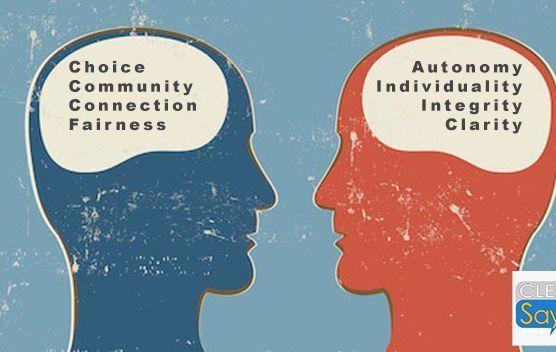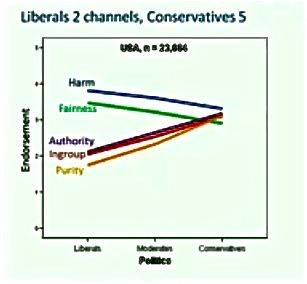The Moral Roots of Liberals and Conservatives

November 11, 2021
No matter what political party you associate with, you may wonder why the opposite party thinks a certain way or has specific beliefs on political issues.
In a TED talk, Psychologist Jonathan Haidt studied the five moral values that form the basis of our political choices (whether you identify as left, right, or in the center). In this talk, Haidt pinpoints the moral values that liberals and conservatives tend to favor the most. Haidt studies how and why these values have evolved to be considered moral. He hopes that we can learn to be civil and open-minded. The five values he mentions are vastly agreed upon by the psychological field to have the best understanding of the dimensions in our personalities.
Haidt starts with the “worst idea in all of psychology” which is the start of morality and how people born into this world already know so much about their surroundings. Haidt and his colleague Craig Joseph studied the literature of anthropology and discovered the 5 best matches that are considered the foundations of morality.
- Harm/Care

- Fairness/reciprocity
- Loyalty
- Authority/respect
- Purity/sanctity
Haidt talks about how if each person has these 5 systems in their mind, each of them is going to have different intuitions and emotions. Brian Nosek, Jesse Graham, and Haidt set up a questionnaire where 30,000 people (from all different political parties) answered questions on where they fall on these 5 foundations. Liberals were more inclined to vote higher on fairness and harm/care rather than conservatives. But, for the other 3, conservatives voted higher on Loyalty, Authority/respect, and purity/sanctity. Haidt goes on to mention that liberals have a 2 foundation of morality while conservatives tend to have a 5 foundation in morality.
After, he compares both of these parties to Yin and Yang. He goes on to say that, “Yin and yang aren’t enemies. Yin and yang don’t hate each other. Yin and yang are both necessary, like night and day, for the functioning of the world.”
Haidt ends the TED talk by talking about how our minds were designed by evolution to help unite us and also divide us while also being blinded by the truth sometimes. The human condition he mentions talks about why each person thinks they’re in the right. We all have reasons for what we say or do, and Haidt’s big point is that he wants both groups to help make the world a better place and to be more opened minded towards one another.


